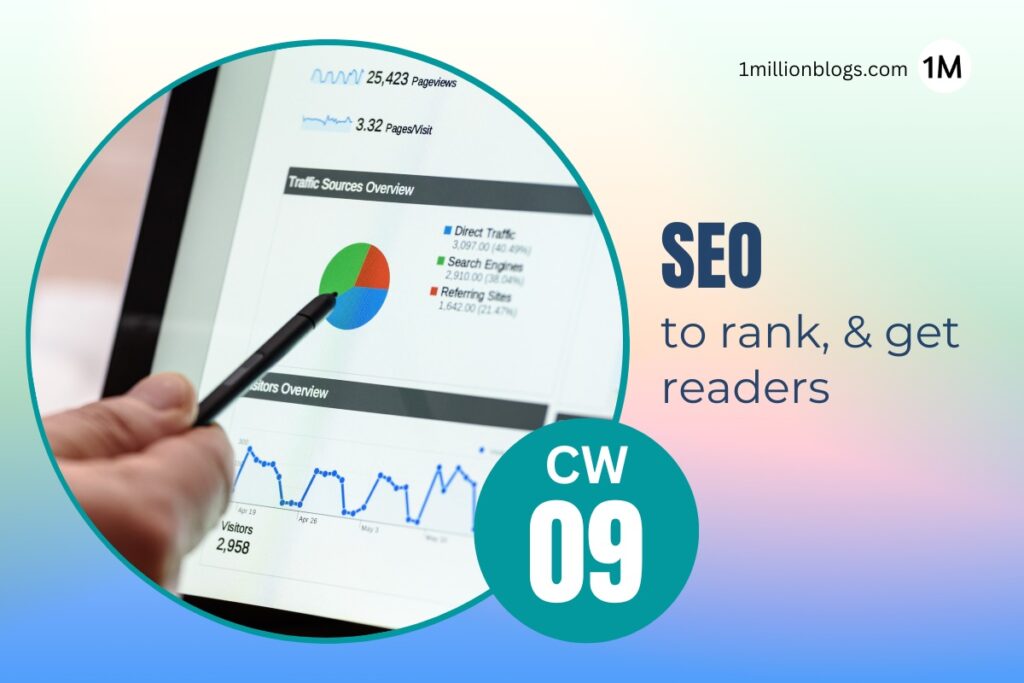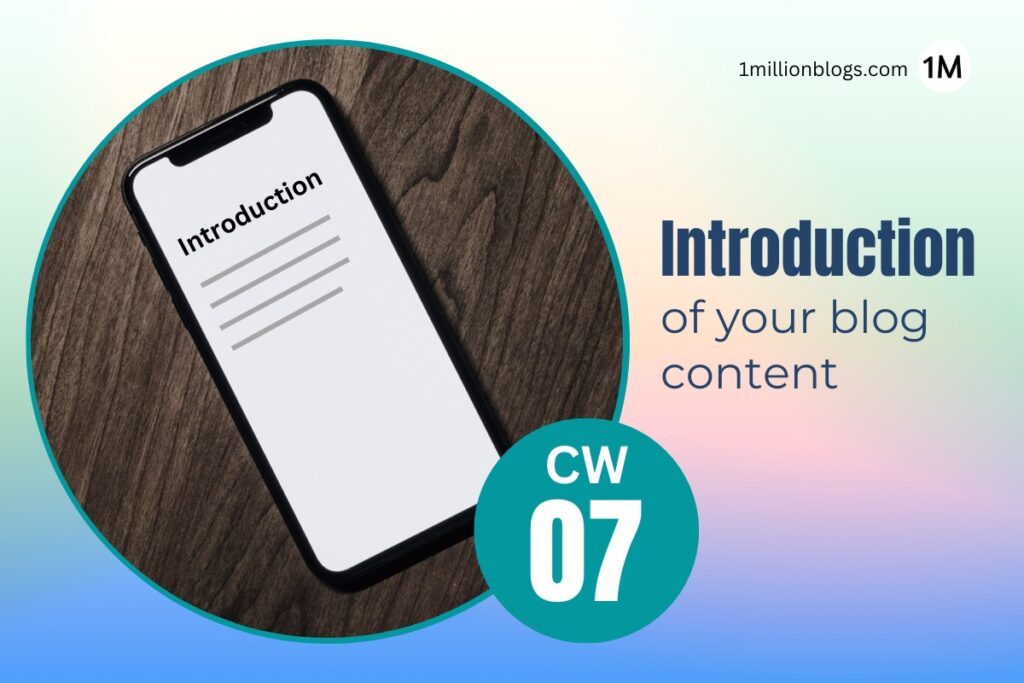SEO is a potential and therefore it’s a priority for all digitally operating businesses. It stands for Search Engine Optimization, and no digital species is left untouched by it.
There are millions of content on the internet that gets ZERO organic traffic for years. The effort, time, and creativity of the writer have all gone in vain. This could be the case with your content as well.
SEO could be your savior!
But most of the content writers are so busy learning writing skills that SEO gets completely ignored. Even those with the most creative writing abilities fail to rank and get enough traffic on their blog just because they ignore SEO completely.
Let’s not make this mistake and learn the basics of SEO for writers.
Why SEO for a content writer?
SEOs are of three types:
- Technical SEO (for the developers)
- Off-page SEO (for the SEO executive)
- On-page SEO (for the content writers)
As a content writer, the last one is your responsibility. Because the on-page SEO is related to the sentences, words intent, flow of the content, etc., which directly relate to the content,
That’s what we will discuss further here.
Search Intent
Google’s algorithm is now smart enough to understand the intent of search queries. Intention means the purpose of the query maker.
For example, if you type “healthy breakfast 5 minutes,” It is clear to Google that you want a quick recipe for your breakfast. Hence, Google prioritizes articles written with an intention to make a healthy dish for morning in less time.

Your content needs to be framed in a way that fulfills the reader’s intention. If yes! Google will consider your site “green” on this parameter and increase your ranking.
These intentions are primarily classified into four categories.
- Informational (looking for some information)
- Navigational (looking for a specific website or page)
- Commercial (trying to find some product or service)
- Transnational (when ready to buy anything online)
Your word choice, sentence structure, and keywords must have traces of the intent that a query maker can have while searching.
Focused Keyword
Targeting to rank for a focused keyword is like going for the headshot!
You can shoot with your eyes closed, but the probability of hitting the target drops significantly. On the other hand, if you have a well-researched keyword or keyphrase for your content, your probability of ranking
So, what is a focused keyword? And how do you find it for your content?
A focused keyword or key phrase is a term that defines the subject of the content. It can be a set of words that you expect to show up when people search for them on Google.
Keep this in mind when picking a focused keyword.
- a keyword that clearly relates to the topic of the content.
- a keyword with a higher search volume. Means, a lot of people are searching this on Google.
- a keyword with low competition. Means, less number of articles are written targeting this keyword or keyphrase.
- Long-tail keywords, this makes your content more centric to your audience, and the chances of ranking higher increase.
- a keyword with search intent.
Lots of free and paid SEO tools are on the market to help you with your keyword research. A detailed research is only possible through paid tools; however, UberSuggest, Answer the Public, Google Search Console, Google Suggestions, competitor articles, etc. are some of the free ways to research for your focused keyword.
How do you use focused keywords or keyphrases in your content? Here are some points to keep in mind:
- Include your focused keyword in the title of your content.
- Use a focused keyword in the first paragraph of the content.
- Use your focused keyword 10-15 times for 1000 words of content. (Keyword Density)
- Avoid keyword stuffing.
- Do not forcefully add keywords; make it natural.
Related keyword
Focused keywords alone aren’t enough. There is a list of keywords that are related to the topic and that matter as well for your content. We can’t be sure what people will type to search. So, related keywords can help you to include those related intent, long tail keywords, location based keyword, transactional keywords, etc.
Tools are useful for finding relevant, related keywords. Google auto-suggestions and related keywords are a free and easy way to find some of the top related keywords.
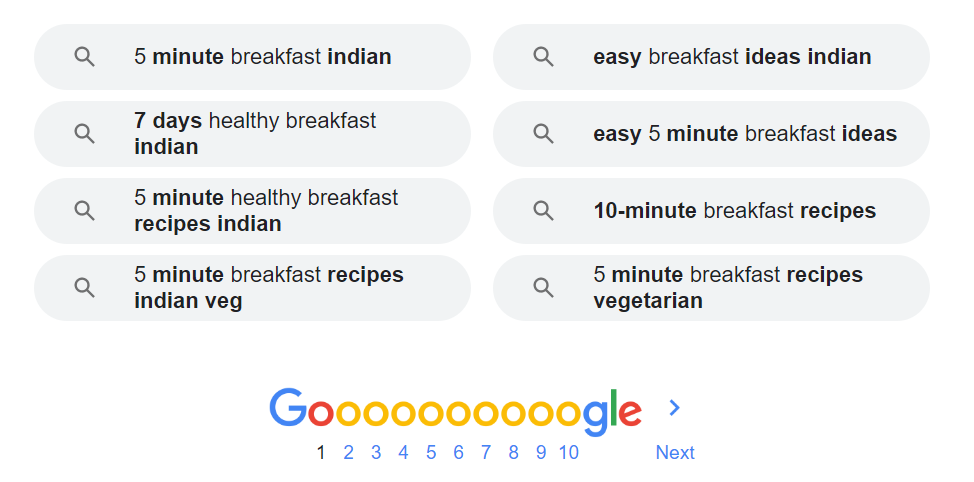
Linking
Links play an important role in SEO.
As a content writer, your responsibility is confined to on-page SEO. So, we will not talk about backlinks or other stuff. It’s less about the links you are getting and more about the links you are giving.
Such links are of two types:
- External links (linking pages in different domains)
- Internal links (linking pages within the same domain)
Internal links interconnect different pages of the same website, making it easy for the Google crawlers to better connect your content with the similar content on your own website. Internal linking also provides you with good navigational traffic.
On the other hand, external links are given to different websites. Hence, its authority, spam score, and relevancy all need to be checked. If it’s not a healthy website, use “no-follow” tags. While do-follow or natural links are fine for those websites you are confident about.
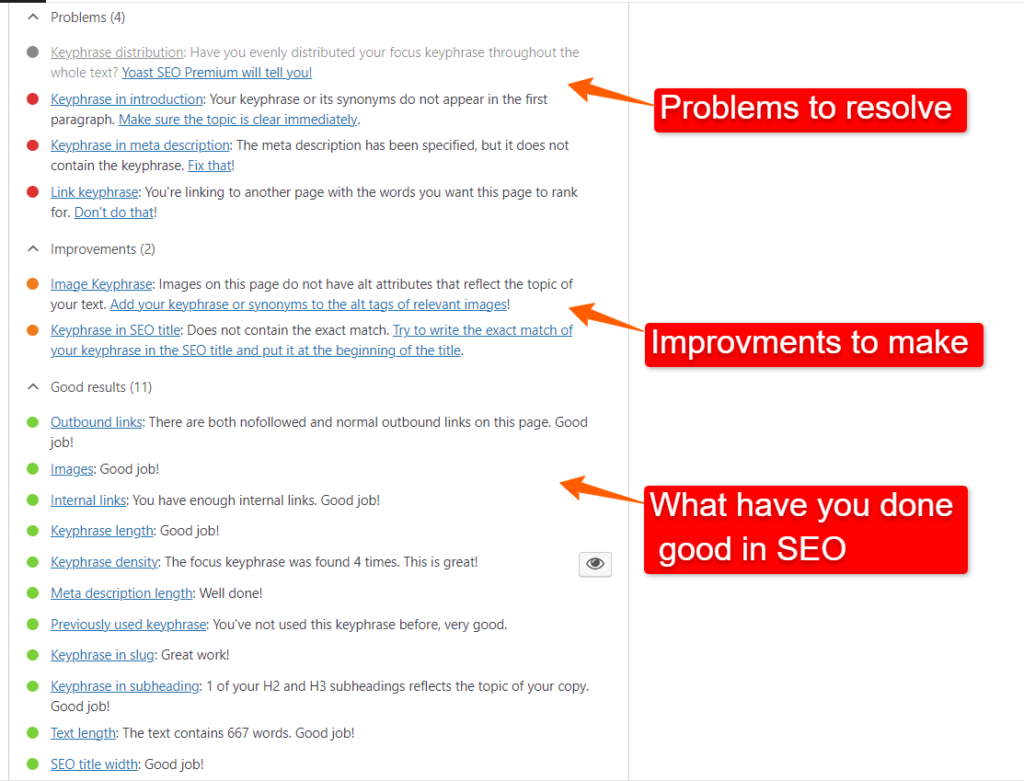
Finally, the content itself
Keywords are important. But Google has more than 200 factors that decide the ranking of the pages in SERPs.
So, do not have any misconception that focused keywords, related keywords, links, intent, etc. will guarantee you the first page. These are important for ranking, but they are only a few factors among hundreds of them.
In our effort to understand SEO for writers, we can’t ignore the readability and usefulness of the content itself.
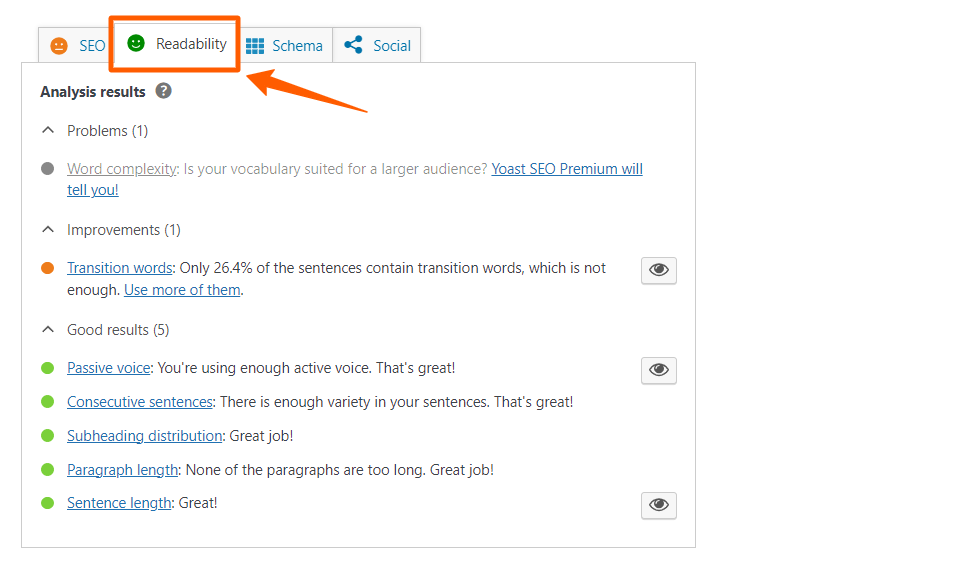
Content that lies in the category of Your Life Your Money (YLYM), like health, finances, safety, security, legal, etc., is indexed with the E-E-A-T factor, which stands for Experience Expertise, Authoritativeness, and Trust. Keywords are not as prominent as they are for general content.
For example, if your content is on “first aid for heart attack patients,” Google won’t want a noob to rank on top with their inexperienced and inexpert tips for such critical issues.
Conclusion
Is that all a content writer needs to know about SEO?
Not actually! SEO and content are seamlessly bonded to each other. The more you know, the better it is! But, whatever we have discussed above are basics of SEO for writers. If you know these, you can help your freelance clients easily rank and increase organic traffic.
To learn more, join mentorship.
